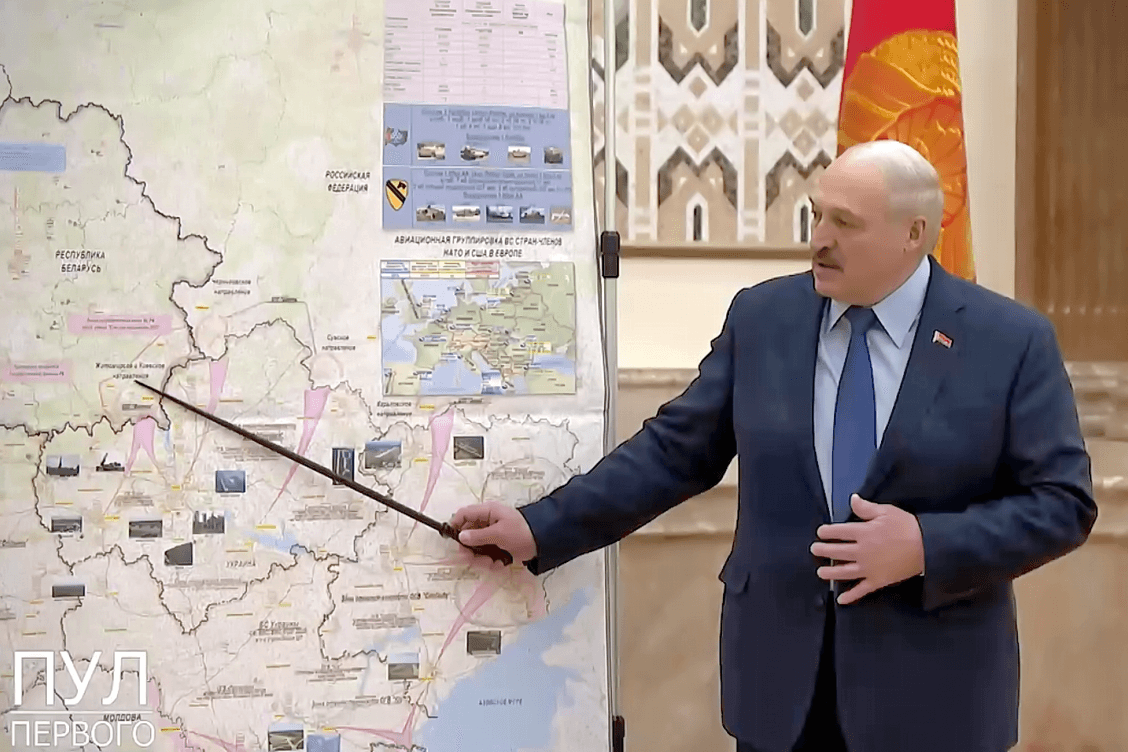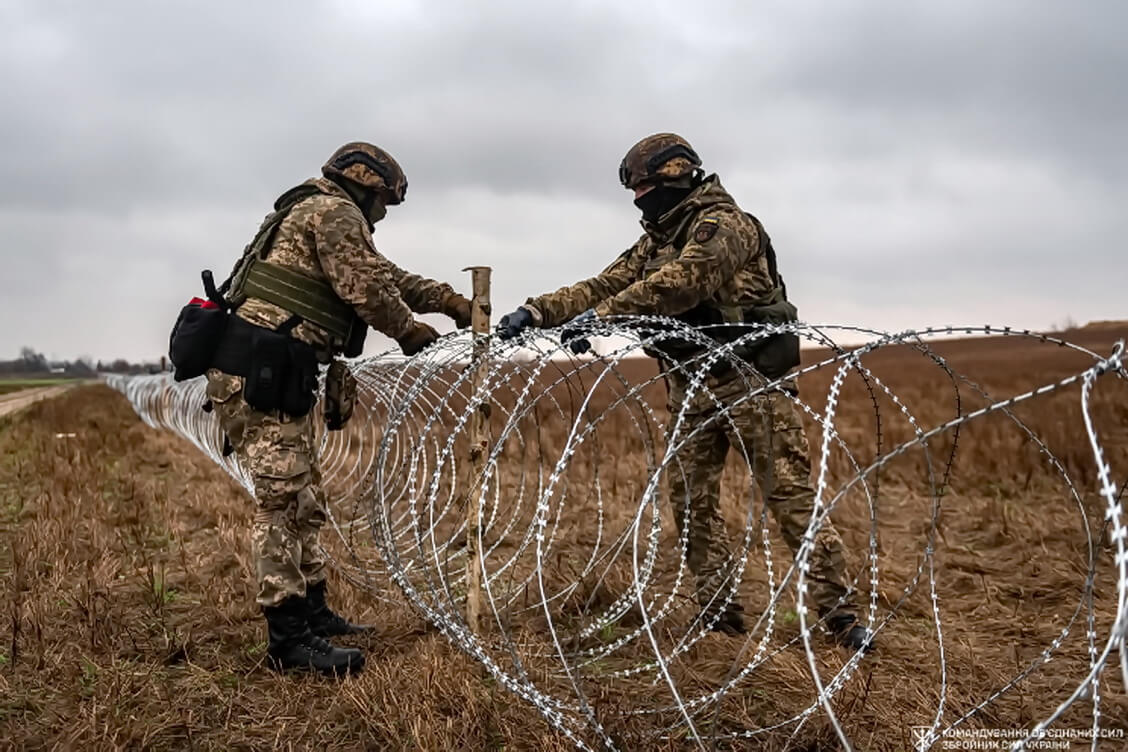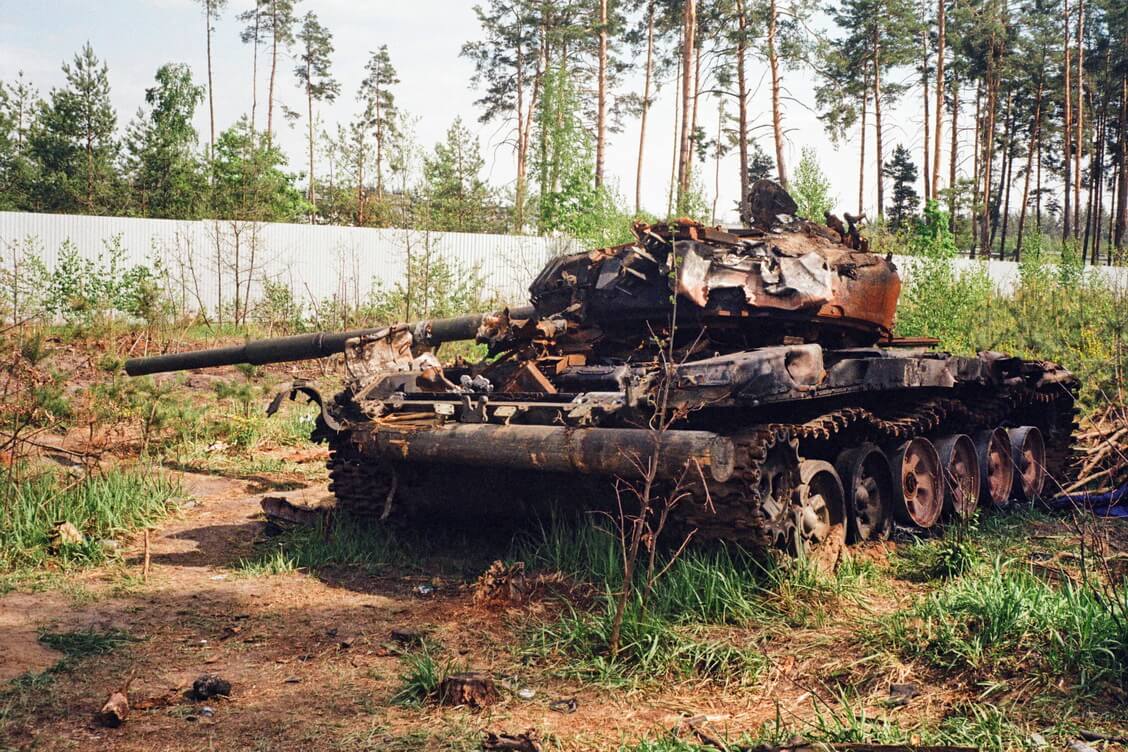Although Alaksandar Łukašenka portrays himself as a loyal ally of Russian President Vladimir Putin, he is wary of deeper involvement in the Russian war against Ukraine. Two years into the war, he has kept his troops at hand and restyled himself as a wise guardian of peace.

Although the West and the opposition consider him a co-aggressor, for ordinary Belarusians it is important that no missiles are flying at them and no Belarusian soldiers are dying on the battlefield.
Reading enemy’s mind
Łukašenka realizes that if caskets arrive in Belarus from the front line, the stability that he has cemented by reprisals could be shaken.
On February 20, at a meeting with security officials, he shared “classified information” on what an unnamed chief of staff of a leading NATO country “thinks” about Belarus.
“We have failed to involve Belarus in the conflict,” he cited the NATO official’s alleged thinking. “Minsk’s active participation in the war would have undermined the regime in Belarus and Łukašenka. This possibility remains open.”
Reading the enemy’s thoughts is a top-class skill, but the claim that NATO seeks to drag Belarus into the war is simply preposterous.
Kyiv is extremely cautious. Obviously reluctant to antagonize Putin’s ally, Ukrainian President Volodymir Zelensky has shunned Belarusian opposition leader Śviatłana Cichanoŭskaja.
As stuttering Western help makes life difficult for Ukrainian troops on the front line, the West and Kyiv have no interest in the Belarusian army joining the hostilities.
Therefore, Łukašenka voiced his own fears rather than quoted someone else’s thoughts.
Putin not pushing, just yet
Contrary to predictions, Łukašenka’s has not sent Belarusian troops to help Russian forces in Ukraine. The Russians have not launched missiles from Belarus at Ukraine since the fall of 2022. In fact, most of them have left Belarus.
If Putin insisted, Łukašenka would have to send his soldiers to war, but so far there have been no signs of pressure.
Quite the contrary, Moscow is more generous than ever, and the two leaders have held hours-long meetings, obviously enjoying each other’s company. Putin clearly values his last ally and is probably listening to his arguments.
Anything can happen in the future, but today the Kremlin apparently has no great need to use Belarusian cannon fodder.
A few thousand Belarusian elite forces would not make a difference on the battlefield, while other units are said to lack proper training and are underequipped.
Moscow has not enough manpower and equipment to launch a new offensive from Belarus, while the Ukrainians have mined and fortified the border area.

Belarusian Defense Minister Viktar Chrienin, in an apparent attempt to exaggerate the threat, claimed that the Ukrainian Armed Forces have assembled a “strike group” of up to 114,000 troops at the border with Belarus.
Kyiv is not as reckless as to attack Belarus, but it has to keep a large force to secure the Belarusian border, which is also good for Moscow.
Belarusians do not want to fight
In February 2022, riot police in Minsk brutally suppressed anti-war demonstrations in the first days of the large-scale war, and since then Belarusians could not even stick their necks out.
Police shot one man in the knees and sentenced more than a dozen to lengthy prison terms over attempts to damage railroad equipment to slow the transportation of Russian military hardware in Belarus.
Law enforcers acted ruthlessly, forcing many ordinary people to bury their heads in the sand and pretend that their country is not involved in the war.
A survey conducted by Chatham House’s Belarus Initiative in November found that 47 percent of urban residents agreed with the statement that “Belarus remains neutral in the Russian-Ukrainian war thanks to Łukašenka’s firm stance.”
The state media are successfully promoting this message and will push it even harder before the 2025 presidential election, unless Putin forces Łukašenka to send Belarusian soldiers to Ukraine.
According to the poll, 58 percent of respondents are in favor of an immediate ceasefire and peace talks, and only 2 percent said that Belarus should enter the war alongside Russia.
Łukašenka’s prophecies
In the first weeks of the Kremlin’s full-scale assault on Ukraine, Łukašenka was very tense and agitated, probably expecting that Belarus would also have to join and that sanctions would cripple the economy. Recent developments, however, cheered him up.
The Ukrainian counter-offensive failed, while Russian troops have advanced and taken Avdiivka. With a $95 billion package including aid for Ukraine still not approved in Washington, other allies are struggling to fill the gap.
Łukašenka, who casts himself as a visionary, claimed that the Americans are preparing to “dump Zelensky, they are fed up with him.”
A few months earlier, after the conflict between Israel and Hamas broke out, Łukašenka said, “I warned him when the war started, I called Zelensky: ‘Volodya, listen to me, an experienced man, I’ve been working for years. As soon as there is trouble anywhere, they will forget about you.”
In November, he said that “Ukraine will still be ours. Nobody needs this Ukraine.” He added that “Europe will crawl to us, to Russia.”
Łukašenka sees that the Western sanctions are not as devastating as feared. The Belarusian economy grew by 3.9 percent last year.
Meanwhile, the Kremlin has supplied him with cheap energy, rescheduled debt and made its railways and ports available for Belarusian transits. Belarusian exports to Russia hit an all-time high of $25 billion last year.
The downside is Minsk’s dependence on Moscow, but Łukašenka has no choice.
Belarus’ relations with the West have been smashed into pieces. On March 1, Lithuania will close two more crossings at the border with Belarus. The voices of those who want to harmonize restrictions for Belarusians and Russians are growing louder in this country despite very different attitudes to the war in Belarus and Russia.
The move will not upset Lukashenka as much as ordinary Belarusians. He and his cronies cannot travel to Europe anyway, but ordinary people might be trapped in dictatorship. Moreover, the closures might make life harder for opponents of the regime who fled Belarus.
It is hard to reconcile European politicians’ statements that they see Belarus in a united Europe with the descending iron curtain.
What if Ukraine conflict is frozen?
Obviously, Ukraine will have a hard time this year and may be forced to accept a ceasefire on Russian terms.

What does it mean for Belarus? Although Łukašenka and generals trumpet the danger of an armed invasion or a coup, his opponents are clearly incapable of ousting him by force. Therefore, the so-called window of opportunity may never open.
Some analysts say that if the Russian-Ukrainian conflict is frozen, the Kremlin will cut its support for Łukašenka, or perhaps Putin will take Belarus as a consolation prize, or replace the incumbent with a pliant figure.
These options are unlikely. It makes more sense for the Kremlin to keep Belarus as a formally sovereign satellite. It seems that Putin is quite satisfied with Łukašenka, so why bother replacing him, especially considering that it may not be as easy as it seems.
Moscow will continue to support Minsk because it needs it as a strategic outpost against NATO. And even if the conflict is frozen, Putin will certainly plan a new attack on Ukraine and will need an ally in Minsk.
Putin and Lukašenka are celebrating, but the struggle continues. The two “hard nuts” may not be as hard to crack as many think. Lukašenka’s constant references to conspiracies, coups and probable catastrophes reveal his fears and insecurities.